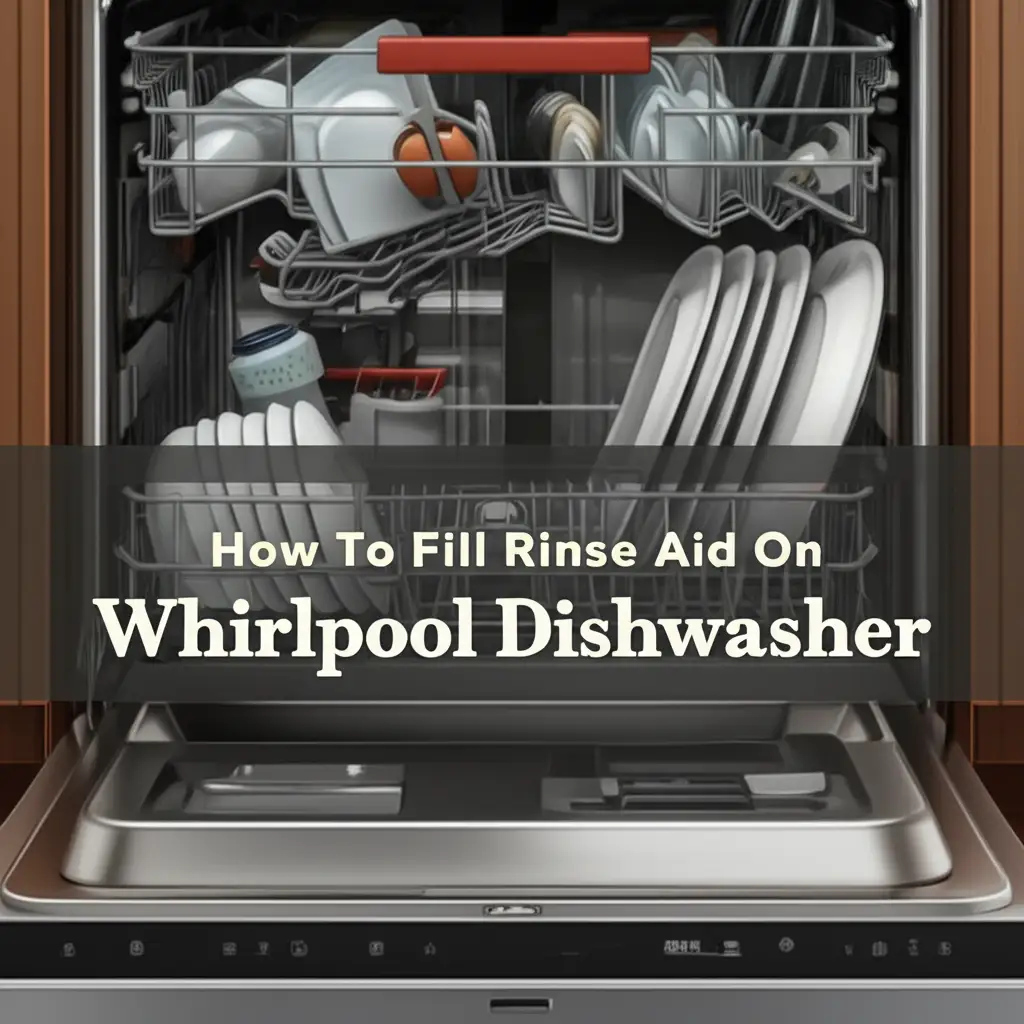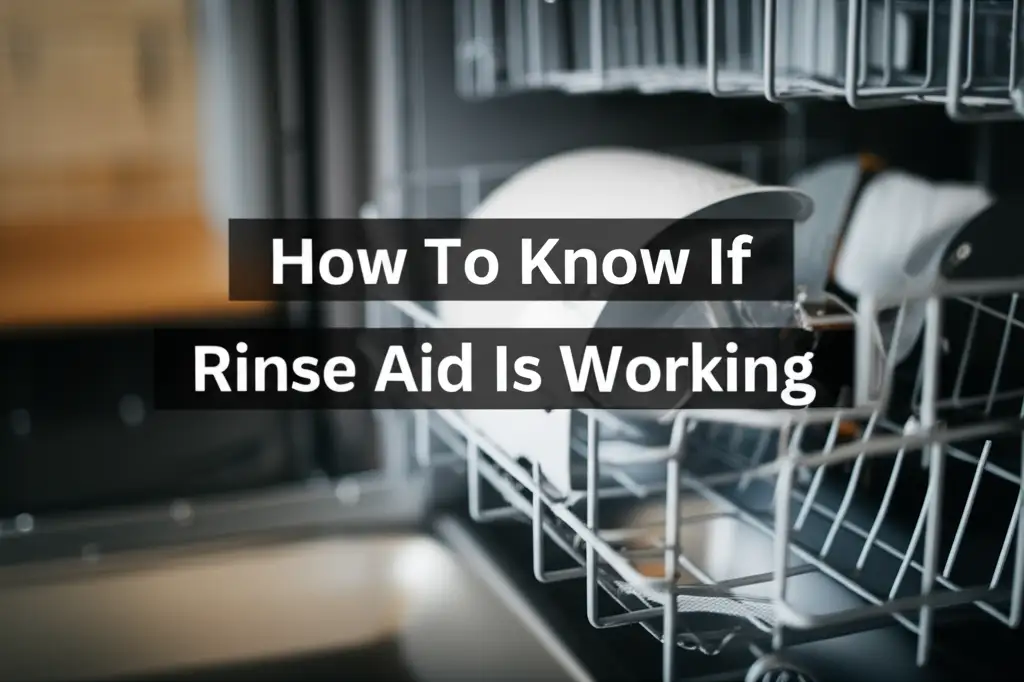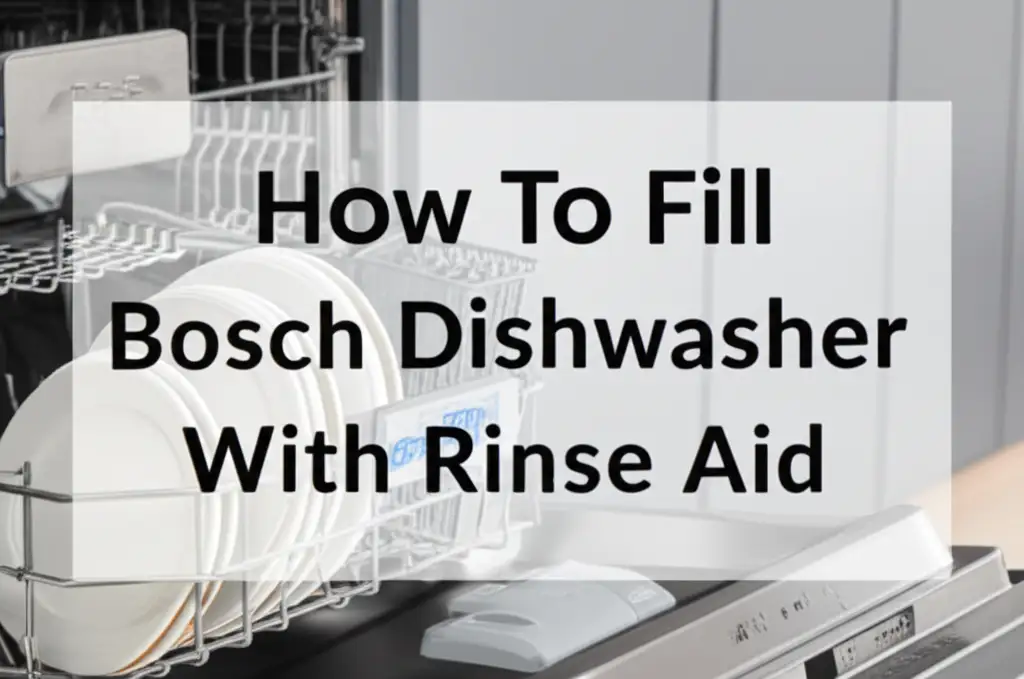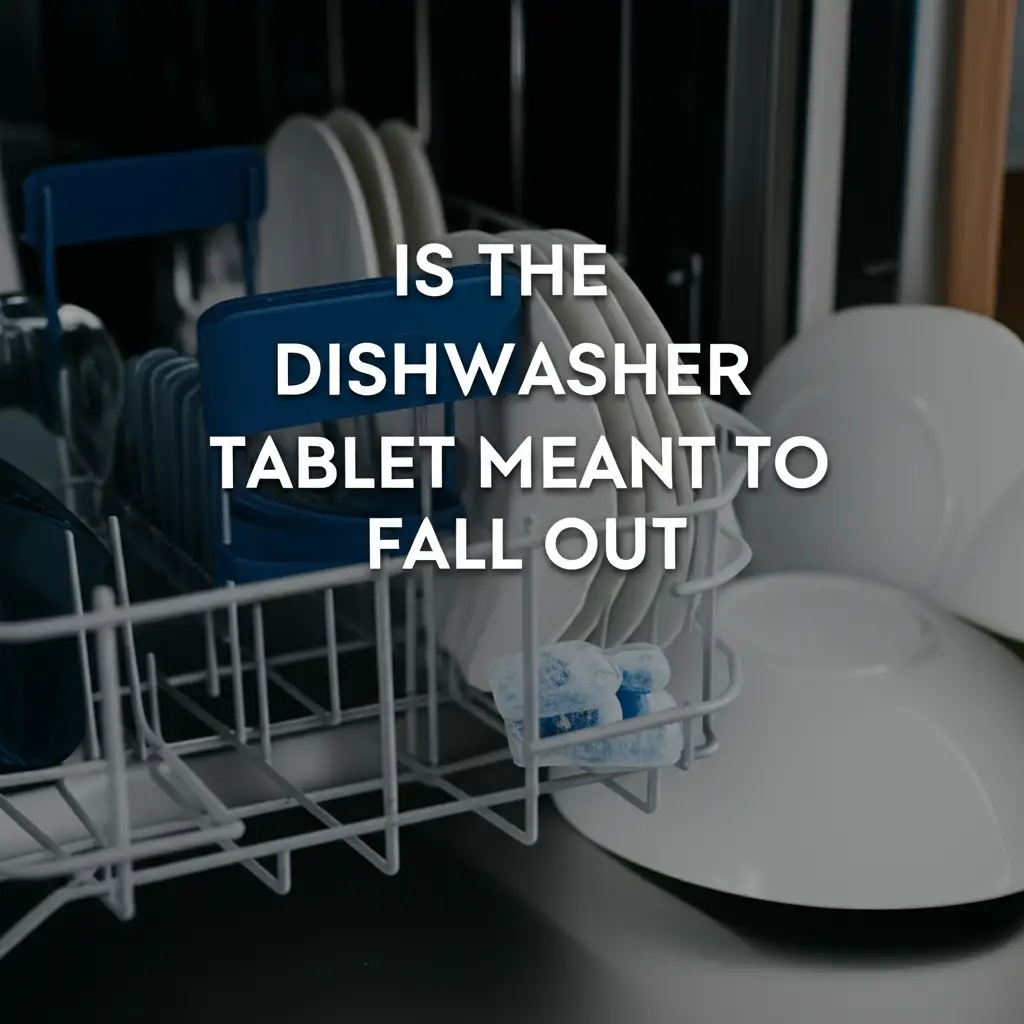· Katria Melrose · Dishwasher Maintenance · 18 min read
Can Bosch Dishwasher Be Used In Hard Water
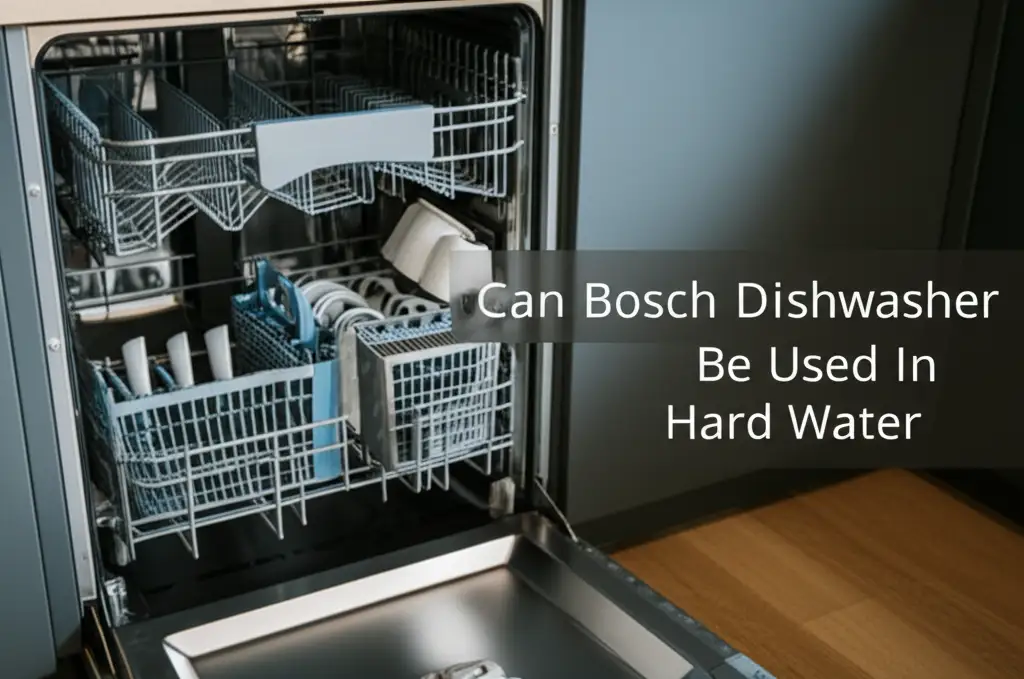
Using a Bosch Dishwasher in Hard Water: A Guide
Dealing with hard water in your home can be a real headache, especially for appliances like your dishwasher. I know many homeowners worry about the long-term effects of mineral buildup. You might wonder if your high-quality Bosch dishwasher is up to the task of handling the challenges hard water presents. I’m here to tell you it’s a common concern, but one that Bosch has largely addressed with smart engineering.
Hard water contains elevated levels of minerals, primarily calcium and magnesium. These minerals can leave behind unsightly spots on dishes and cause internal damage to your appliance over time. This guide will explore how Bosch dishwashers are designed to cope with hard water. We will also cover essential strategies and maintenance tips to protect your investment. By the end, you will understand how to keep your Bosch dishwasher running efficiently, even in the toughest water conditions.
Takeaway
- Bosch dishwashers are engineered to handle hard water, often featuring built-in water softeners.
- Monitor for signs like cloudy dishes or limescale buildup to identify hard water issues.
- Use dishwasher salt and quality detergents designed for hard water to protect your appliance.
- Regular cleaning and descaling are crucial for maintaining performance and preventing damage.
- Consider a whole-home water softener for severe hard water challenges.
Yes, a Bosch dishwasher can absolutely be used in hard water environments. Many Bosch models come equipped with integrated water softening systems designed specifically to counteract the negative effects of high mineral content, protecting the appliance and ensuring optimal cleaning results.
Understanding Hard Water and Its Impact on Dishwashers
Hard water is a common issue in many households across the globe. It means your tap water contains a high concentration of dissolved minerals. The main culprits are calcium and magnesium. While these minerals are generally harmless for consumption, they can cause significant problems for household appliances. I often see their effects firsthand.
When hard water goes through your dishwasher, these minerals do not simply wash away. They can deposit onto your dishes, leaving behind white spots or a cloudy film, especially on glassware. More critically, these mineral deposits, often called limescale, can build up inside the dishwasher itself. This buildup affects internal components like heating elements, spray arms, and pumps. Over time, limescale reduces the appliance’s efficiency. It can even lead to costly repairs. A heating element coated in limescale works harder to heat water, consuming more energy. It also shortens its lifespan. Understanding these impacts is the first step in protecting your appliance. This is important for any household appliance, similar to how Is Bosch washing machine good for hard water addresses hard water challenges for washers.
Hard water affects not only cleaning performance but also the longevity of your Bosch dishwasher. The continuous exposure to mineral-rich water can corrode parts or block critical passages. This can lead to issues such as poor drainage or inadequate water filling. For example, if you notice your Bosch dishwasher is not filling with water, it could be due to mineral buildup restricting water flow. Regular maintenance becomes essential to mitigate these risks. Knowing your home’s water hardness level is key to implementing effective protective measures. You can easily test your water hardness with a simple kit.
Bosch Dishwasher Features Designed for Hard Water
Bosch dishwashers are renowned for their quality and innovative features. When it comes to hard water, Bosch has invested significantly in technology to combat its damaging effects. Many of their models, especially those in the higher series, come with an integrated water softening system. This is a crucial feature that sets Bosch apart.
This built-in water softener works by regenerating an ion exchange resin with salt. As water enters the dishwasher, it passes through this resin. The resin attracts and holds onto the calcium and magnesium ions. This process effectively removes hardness-causing minerals from the water before it reaches the washing chamber. The result is softened water for the wash cycle. This soft water helps prevent limescale buildup on your dishes and inside the machine. It also allows detergents to work more effectively. This feature ensures your dishes come out sparkling clean. It also extends the life of your appliance.
To maintain the effectiveness of this internal softener, you must add special dishwasher salt. This salt is different from the detergent you use for cleaning dishes. It is a high-purity sodium chloride. This salt regenerates the resin bed in the softener. Your Bosch dishwasher typically has a dedicated salt reservoir, often located at the bottom of the wash tub. The appliance will usually have an indicator light or a message on the display to alert you when the salt level is low. Keeping this reservoir filled is vital for the water softening system to function correctly. Without it, the system cannot regenerate, and hard water will begin to affect your machine and dishes. This system directly counters problems like how to get hard water stains off stainless steel dishwasher surfaces.
Beyond the water softener, Bosch dishwashers also feature durable stainless steel interiors. Stainless steel is more resistant to mineral etching and corrosion than plastic tubs. Their advanced filtration systems also help trap mineral particles and prevent them from recirculating. These design choices collectively contribute to a Bosch dishwasher’s ability to withstand hard water conditions better than many other brands. It’s important to understand these features to appreciate why Bosch is a good choice for homes with hard water.
Signs Your Bosch Dishwasher Is Struggling with Hard Water
Even with Bosch’s robust features, hard water can still present challenges. It is important to recognize the signs that your Bosch dishwasher is struggling with hard water. Early detection allows you to take corrective action before serious damage occurs. I advise you to pay close attention to your dishes and the appliance itself.
One of the most common indicators is the appearance of your dishes after a wash cycle. You might notice white spots or a cloudy film on glassware, plates, and cutlery. This is particularly visible on clear items. These are mineral deposits left behind by hard water. They are not detergent residues. If your dishes feel gritty or not completely clean, even after a full cycle, hard water is likely the culprit. This is a clear sign that the water softening system might need salt, or the water hardness setting needs adjustment.
Another tell-tale sign of hard water issues is the condition of the dishwasher’s interior. You may observe a chalky, white buildup on the stainless steel walls, spray arms, or around the filter. This buildup is limescale. Limescale can accumulate in areas that are harder to reach, such as the heating element or water lines. Over time, it can impede the performance of the spray arms by blocking the nozzles. This prevents proper water distribution during the wash cycle. A less obvious sign might be a decrease in the dishwasher’s cleaning power or an increase in cycle times. The machine might work harder to compensate for mineral buildup.
Furthermore, if you notice your Bosch dishwasher producing odd noises or not draining properly, hard water could be contributing. Mineral buildup can clog pumps and hoses, leading to inefficient draining or even water pooling in the bottom of the tub. For example, if you find water in the bottom of your Bosch dishwasher, it could signal a blockage caused by limescale. Regularly inspecting the filter and spray arms for mineral deposits will help you catch these problems early. Addressing these signs quickly can prevent more extensive repairs and prolong the life of your appliance.
Effective Strategies for Managing Hard Water in Your Bosch
Managing hard water effectively in your Bosch dishwasher is crucial for its longevity and performance. While Bosch dishwashers have excellent built-in solutions, you still play an active role in maintaining optimal conditions. I have several strategies I always recommend to my clients. These simple steps can make a big difference.
First and foremost, ensure your Bosch dishwasher’s internal water softener is functioning correctly. This means regularly checking and refilling the dishwasher salt reservoir. This is not the same as your regular detergent. The salt is essential for regenerating the softener’s ion-exchange resin. Your dishwasher will usually have an indicator light telling you when it is low. Ignore this at your appliance’s peril. I always suggest keeping extra dishwasher salt on hand so you never run out.
Next, it is vital to use the right detergents and rinse aids. For hard water areas, choose detergents specifically formulated to combat mineral deposits. These often contain chelating agents that bind to minerals, preventing them from depositing on dishes or machine parts. Pairing this with a high-quality rinse aid is also critical. Rinse aid helps water sheet off dishes, preventing spots and streaks. It lowers the surface tension of water, allowing it to drain more completely from surfaces. This action reduces the chances of water droplets drying and leaving mineral residues. My personal experience shows that using a good rinse aid dramatically improves dish dryness and shine, especially with hard water.
Consider adjusting your dishwasher’s water hardness setting if your model allows it. Many Bosch dishwashers let you program the exact water hardness level in your area. You will need to test your tap water first to determine its hardness. This setting tells the internal softener how frequently it needs to regenerate. Calibrating this correctly ensures the softener works efficiently without using excessive salt. If your water is very hard, you may need to increase this setting. This small adjustment can have a big impact on your cleaning results and the overall health of your dishwasher.
Maintenance Tips to Protect Your Bosch from Hard Water Damage
Proper maintenance is key to extending the life of your Bosch dishwasher, especially in hard water areas. Ignoring routine care can lead to premature wear and reduced performance. I always emphasize a proactive approach to prevent hard water damage.
Regularly clean your dishwasher’s filter system. Bosch dishwashers typically have a multi-stage filter at the bottom of the tub. This filter traps food particles and mineral deposits. If this filter gets clogged with limescale, it can hinder water circulation and cause poor cleaning results. I recommend rinsing the filter under running water at least once a week, or more often if you use your dishwasher frequently. A soft brush can help dislodge stubborn debris. This simple task prevents many potential problems.
Beyond the filter, periodic descaling of the dishwasher’s interior is essential. Even with a water softener, some mineral residue can accumulate over time. You can use a dedicated dishwasher cleaner designed for limescale removal. Alternatively, a natural solution like white vinegar works wonders. I often recommend running an empty cycle with two cups of white vinegar placed in a dishwasher-safe bowl on the bottom rack. The vinegar’s acidity helps dissolve mineral buildup from the interior, spray arms, and heating element. Ensure no dishes are in the dishwasher when doing this. Can vinegar be used in a dishwasher is a common question, and for descaling, it’s a resounding yes.
Don’t forget to clean the spray arms. These arms have tiny holes through which water is sprayed. Hard water deposits can block these holes, leading to uneven water distribution and poor cleaning. Many Bosch spray arms are removable, allowing for easy cleaning. Use a toothpick or small brush to clear any blocked holes. This ensures water sprays effectively onto all dishes. Additionally, wipe down the door seal and edges regularly to prevent limescale buildup there. A damp cloth with a mild cleaner can remove any residue before it hardens. These consistent maintenance habits will keep your Bosch dishwasher performing at its best and significantly reduce the impact of hard water. This approach is similar to how you would clean hard water stains from other surfaces in your home.
Choosing the Right Detergents and Additives for Hard Water
The type of detergent and additives you use can significantly impact your Bosch dishwasher’s performance in hard water conditions. It is not just about getting dishes clean. It is also about protecting the appliance itself. I have experimented with various products, and my findings consistently show that specific formulations work best.
When selecting a dishwasher detergent, look for those explicitly marketed for hard water. These detergents often contain higher concentrations of phosphates or chelating agents. While phosphates have environmental concerns, they are highly effective at sequestering minerals, preventing them from redepositing. Phosphate-free alternatives use other complexing agents. These agents bind with calcium and magnesium ions. This keeps them suspended in the water so they can be rinsed away rather than sticking to your dishes or the dishwasher’s interior. Using a powerful, hard-water-specific detergent helps ensure that the cleaning agents remain active, delivering a thorough wash.
Rinse aid is not optional when you have hard water. It is a crucial additive. Rinse aid dramatically reduces water spotting and promotes faster drying. It works by reducing the surface tension of water. This allows water to sheet off dishes more evenly. Without rinse aid, water droplets tend to cling to surfaces. As they evaporate, they leave behind dissolved minerals, resulting in visible spots. I always keep the rinse aid dispenser in my Bosch filled. You will notice a remarkable difference in the clarity and shine of your glassware, especially when you compare it to washes without rinse aid.
Lastly, never underestimate the power of dishwasher salt for Bosch models with built-in softeners. This salt is pure sodium chloride. It is specifically designed to regenerate the ion-exchange resin within the dishwasher’s water softening unit. Using regular table salt or other types of salt will not work and can even damage your appliance. The salt compartment is separate from the detergent dispenser. You should refill it regularly as indicated by your dishwasher’s display or indicator light. Ensuring the salt reservoir is always full is the most direct way to keep the internal water softener active. This ensures truly soft water is used for every wash cycle. Proper use of salt, detergent, and rinse aid forms a robust defense against the challenges of hard water.
When to Consider a Whole-Home Water Softener
While your Bosch dishwasher’s internal water softener is effective, it only addresses the water entering the dishwasher. If you live in an area with extremely hard water, you might notice its effects on other appliances and fixtures throughout your home. This is when considering a whole-home water softener becomes a smart long-term investment.
A whole-home water softener treats all the water entering your house. This means every tap, every shower, and every appliance benefits from softened water. This type of system is installed at the main water supply line. It removes hardness minerals before the water reaches any point of use. The benefits extend far beyond just your dishwasher. You will notice improved performance and longevity in your washing machine, water heater, and even plumbing fixtures. Limescale buildup in pipes can reduce water flow and cause blockages over time. A whole-home system prevents this from happening.
For your Bosch dishwasher, a whole-home softener provides an extra layer of protection. While the internal softener is excellent, it has a limited capacity. In very hard water regions, it might need frequent salt refills. A whole-home system can significantly reduce the workload on the dishwasher’s built-in softener. This means less salt consumption for the dishwasher. It also provides even softer water for the washing cycles. This can lead to even better cleaning results and further extend the life of your dishwasher’s internal components. You might notice your Bosch dishwasher heats its own water more efficiently with softened water, as the heating element remains free of limescale.
Deciding on a whole-home water softener depends on your water hardness level and your budget. You can usually get a free water hardness test from local water treatment companies. If your water tests indicate very high hardness (above 10-12 grains per gallon), the investment might be worthwhile. The benefits include cleaner dishes, brighter laundry, softer skin and hair, and significantly prolonged life for all your water-using appliances. It is a comprehensive solution to a widespread problem.
Advanced Tips for Optimal Bosch Dishwasher Performance in Hard Water
To truly maximize your Bosch dishwasher’s performance in a hard water environment, you can go beyond basic maintenance. These advanced tips focus on fine-tuning operations and deeper cleaning methods. I’ve found these strategies helpful for keeping appliances in top shape.
Firstly, always load your dishwasher correctly. Even with soft water, improper loading can lead to dishes not getting thoroughly cleaned. In hard water conditions, this issue becomes more pronounced. Overcrowding prevents water and detergent from reaching all surfaces. This leaves areas susceptible to mineral spotting. Ensure there is enough space between items for water to circulate freely. Pay attention to how spray arms rotate. Do not block them. Proper loading helps the machine’s softening and cleaning capabilities work effectively on every item.
Secondly, consider periodic deep cleaning of the dishwasher’s nooks and crannies. While running an empty vinegar cycle helps, manually cleaning specific areas can be beneficial. For example, remove the spray arms and soak them in a solution of equal parts white vinegar and warm water for about 30 minutes. Use a small brush or toothpick to clear any remaining mineral deposits from the spray holes. Also, inspect and clean the drain filter more meticulously. These are often forgotten spots where limescale can accumulate, impacting water flow and drainage. Addressing these areas prevents problems like blockages that could cause the dishwasher to not fill correctly.
Lastly, be mindful of the water temperature. While Bosch dishwashers heat their own water, connecting to a hot water supply can sometimes influence performance. While Can you connect Bosch dishwasher to hot water is possible, extremely hot water can sometimes exacerbate mineral deposition if not properly softened. Ensure your water heater temperature is set to an efficient level (around 120°F / 49°C). This balance helps with cleaning without encouraging excessive limescale formation. By implementing these advanced strategies alongside regular maintenance, you ensure your Bosch dishwasher continues to deliver sparkling results, even against the persistent challenge of hard water.
FAQ Section
Q1: How often should I add salt to my Bosch dishwasher for hard water? A: The frequency of adding salt depends on your water hardness level and how often you use your dishwasher. Most Bosch models have an indicator light or display message that tells you when the salt reservoir is low. For very hard water, you might need to refill it every few weeks. With moderate hardness, it could be every month or two. Always check your dishwasher’s specific instructions.
Q2: Can I use regular table salt instead of dishwasher salt? A: No, you should never use regular table salt in your Bosch dishwasher’s salt dispenser. Dishwasher salt is specifically formulated with high purity sodium chloride to regenerate the internal water softener’s ion-exchange resin. Table salt contains additives like iodine and anti-caking agents that can damage the softener unit and lead to malfunctions.
Q3: What kind of detergent is best for Bosch dishwashers in hard water areas? A: For hard water, choose detergents specifically labeled as “for hard water” or those containing phosphates or chelating agents. These ingredients are designed to bind with minerals and prevent limescale buildup and spotting. Using a quality rinse aid alongside your detergent is also highly recommended for optimal results.
Q4: Will hard water affect my Bosch dishwasher’s warranty? A: Generally, no. Using a Bosch dishwasher in hard water will not void your warranty, especially since many models are designed with integrated softeners. However, neglecting maintenance, such as not refilling the salt or not descaling the machine, which leads to damage from limescale buildup, could potentially impact warranty claims. Always follow the manufacturer’s care instructions.
Q5: Can I clean hard water stains from the interior of my Bosch dishwasher with vinegar? A: Yes, white vinegar is an excellent natural descaling agent. You can place two cups of white vinegar in a dishwasher-safe bowl on the bottom rack and run an empty hot water cycle. The vinegar helps dissolve mineral buildup from the dishwasher’s interior, spray arms, and heating element. Do this monthly for best results.
Q6: What is the optimal water hardness setting for my Bosch dishwasher? A: The optimal setting depends on your specific water hardness. You should first test your home’s water to determine its exact hardness level (e.g., in grains per gallon or dH). Refer to your Bosch dishwasher’s user manual to set the internal water softener according to your local water hardness. This ensures the softener regenerates appropriately for your conditions.
Conclusion
Navigating the challenges of hard water with your Bosch dishwasher is entirely manageable. I’ve learned that Bosch appliances are engineered with the resilience and smart features needed to combat mineral buildup, thanks to innovations like their integrated water softening systems. By understanding how these systems work and committing to a few simple, yet effective, maintenance practices, you can ensure your dishwasher performs beautifully for years to come.
Remember to consistently refill your dishwasher’s salt reservoir. Choose detergents and rinse aids formulated for hard water conditions. Also, make descaling and filter cleaning a regular part of your appliance care routine. These actions protect your investment. They also guarantee consistently sparkling dishes and extend the life of your Bosch dishwasher significantly. If you face extremely hard water across your home, exploring a whole-home water softener might be the ultimate solution to protect all your appliances. Embrace these tips and enjoy the long-lasting performance of your Bosch dishwasher, even in the toughest water conditions.
- Bosch dishwasher hard water
- Hard water stains dishwasher
- Dishwasher maintenance tips
- Water softener for dishwasher
- Limescale dishwasher
- Bosch appliance care


